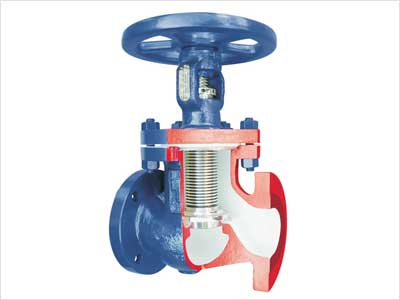In industrial applications, ensuring the integrity of systems that handle high-pressure fluids or gases is paramount. One critical component in maintaining these systems is the bellow seal valve. Known for its robust design and leak-proof functionality, these valves are essential in industries like oil & gas, chemical processing, and pharmaceuticals. This article explores the benefits, working mechanism, and considerations for choosing high-quality valves that prevent leaks, as well as offering guidance on how to purchase the right one.
What is a Bellow Seal Valve?
A bellow seal valve uses a metal bellows to form a seal, preventing leakage from the valve stem area. Unlike traditional valves that may rely on packing materials that degrade over time, the bellow seal is highly resistant to wear and tear. This makes it ideal for high-pressure, high-temperature, and chemically aggressive environments.
The bellow design ensures a long-lasting, leak-tight seal, even in extreme conditions, making it particularly useful in applications where leakage could pose significant risks, such as with hazardous chemicals or flammable substances.
Key Benefits of Bellow Seal Valve
Leak Prevention: The primary benefit of these valves is their ability to prevent leakage. The bellows provide a reliable seal, even in high-pressure systems, reducing the risk of accidents or loss of valuable materials. This leak-proof design is ideal for critical systems.
Extended Service Life: Traditional valves rely on packing that wears down and needs frequent replacement. In contrast, the bellows in these valves have a longer lifespan, reducing maintenance costs and downtime. By choosing high-quality products, businesses can avoid costly repairs and ensure operational efficiency.
Reduced Environmental Impact: Leakage of toxic or harmful substances can have severe environmental consequences. Bellow seal valves help businesses comply with environmental regulations, ensuring safer operations. Many industries, such as chemical processing, rely on them to meet safety standards.
Enhanced Safety: In industries dealing with volatile chemicals or gases, even small leaks can lead to catastrophic incidents. The added protection of a bellow seal ensures safer operation of critical systems, particularly in the oil & gas and pharmaceuticals sectors.
Cost-Effectiveness: While they may come with a higher initial cost compared to standard valves, the longevity and low maintenance needs of bellow seal valves offer substantial long-term savings. Businesses can realize financial benefits by purchasing in bulk or sourcing from a reputable supplier.
How Do Bellow Seal Valve Work?
These valves use a metal bellow, an accordion-like structure made from materials such as stainless steel. The bellow isolates the valve stem from the environment, ensuring a tight seal that prevents leakage.
When the valve operates, the bellow expands or contracts in response to the movement of the stem, maintaining its integrity. This design ensures that the system remains leak-free, even with frequent valve operation.
Industries That Benefit from Bellow Seal Valve
Oil & Gas: Commonly used in the oil and gas industry, these valves control the flow of highly pressurized fluids, where leakage could lead to safety hazards. It’s important to select a high-pressure valve that can withstand extreme conditions.
Chemical Processing: Chemical plants require valves that can handle aggressive chemicals. These valves are ideal for controlling corrosive substances without the risk of contamination or leakage.
Pharmaceuticals: In industries where purity is critical, bellow seal valves help maintain sterile conditions by preventing contamination through leaks. For applications in pharmaceuticals, choosing models that meet stringent safety standards is essential.
Power Generation: In power plants, where high temperatures and pressures are the norm, these valves prevent energy loss and maintain safety, ensuring reliable operation in demanding environments.
Considerations When Choosing Bellow Seal Valve
When selecting a valve, it’s important to consider several factors:
Material Compatibility: Ensure the materials of the valve and bellows are compatible with the fluid or gas being controlled. Stainless steel is often used for its corrosion resistance, but for highly corrosive fluids, other materials like Hastelloy or Inconel may be required.
Pressure and Temperature Ratings: Choose a valve that meets the pressure and temperature conditions of your application. Make sure to select a product with the correct rating for high-pressure systems.
Size and Design: The valve size must be compatible with the pipework and system design. Different valve types (globe, ball, or gate) offer various performance characteristics, so select the right design for your needs.
Seal Integrity: Verify the seal’s integrity, especially in mission-critical environments. The smallest leak can be disastrous, so choose a reputable supplier that offers detailed specifications.
Conclusion
In industries where safety, environmental protection, and operational efficiency are critical, the bellow seal valve stands as a reliable solution for ensuring leak-proof, long-lasting performance. While the initial investment may be higher, the benefits—such as reduced leakage, extended valve life, and minimized downtime—make them invaluable.
Whether you’re seeking cost-effectiveness or enhanced safety and reliability, bellow seal valves offer undeniable advantages. For high-quality valves that meet demanding industry standards, Sigma valves offers a wide range of options designed for your needs.
